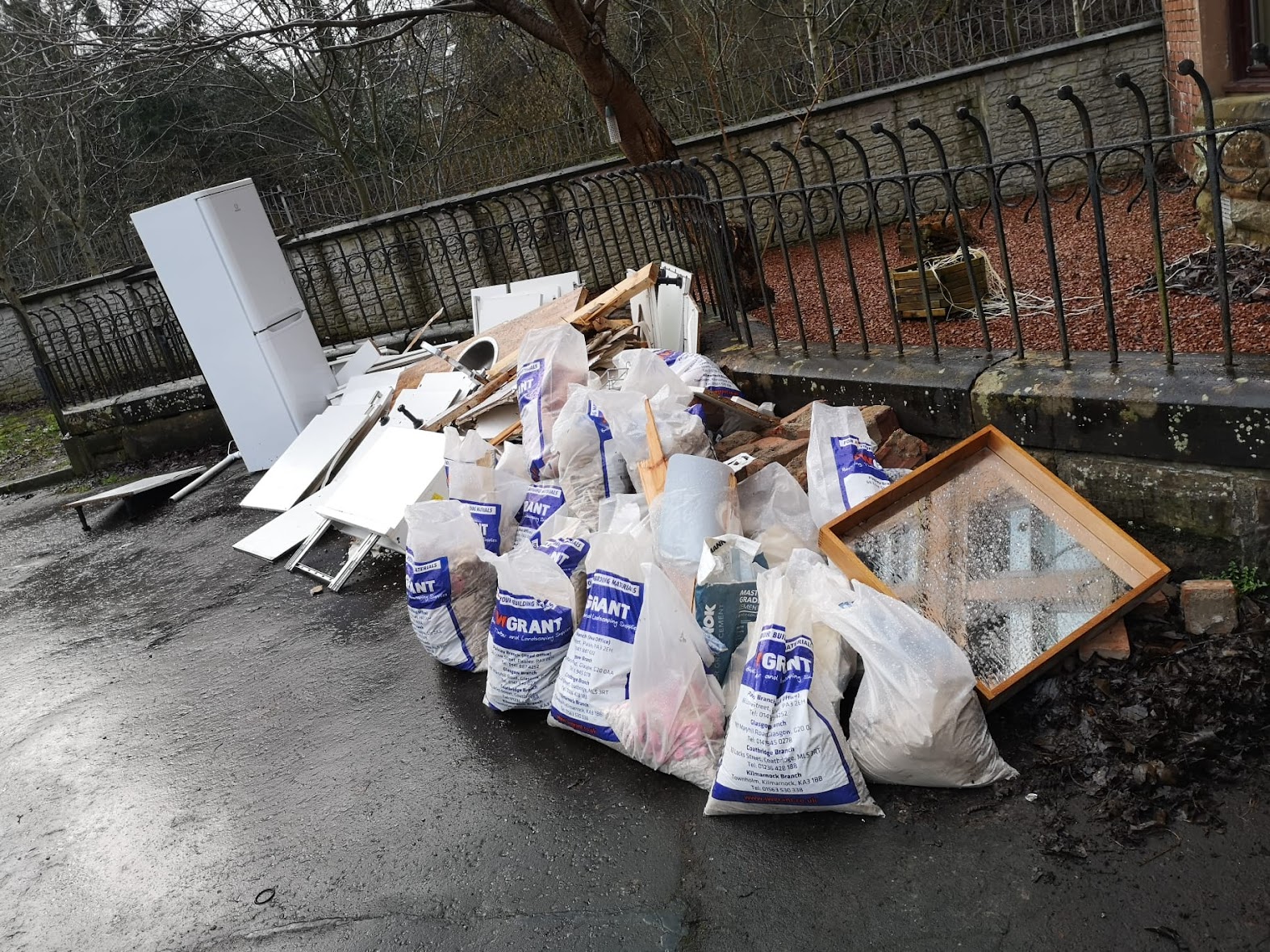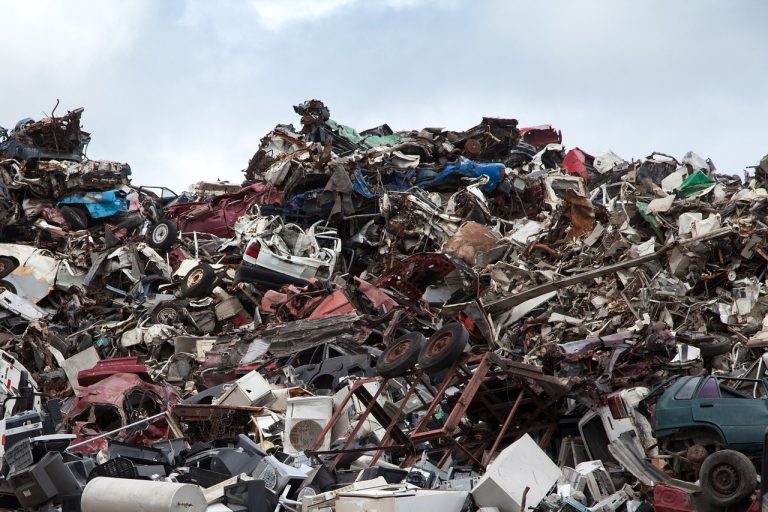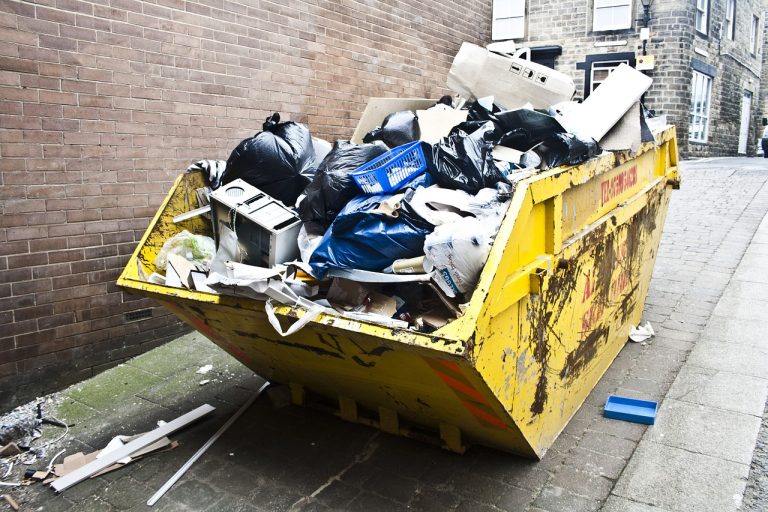Waste Disposal Recommendations for Tradesmen and Handymen
A comprehensive guide for tradesmen on disposing of bulky waste at customer sites.
This guide will delve into the three primary options for disposing of bulky waste, offer practical tips for cost-saving, and provide essential information on legal compliance.
Waste Disposal Options
When it comes to waste disposal, a householder must be aware of their responsibilities. tradesmen typically have three options for disposing of waste, including recycling and rubbish removal services. unless they work for a large retailer that includes waste removal as part of their services:
- DIY Waste Disposal: You can take responsibility for removing and disposing of the waste yourself.
- Hiring a Waste Removal Service: A professional waste removal company can handle the entire process, from pickup to disposal.
- Client Responsibility: In some cases, the client may be willing or required to handle the waste disposal themselves.
1. DIY Waste Disposal
Taking waste away in your own vehicle offers flexibility but comes with several caveats. Ensure you have the appropriate vehicle, insurance, and licenses for waste transportation. This can protect your tools and materials from contamination and avoid legal issues.
Direct Dumping: Weigh the Costs
If you take waste directly to a landfill, ensure you are licensed as a waste carrier. consider the time and cost involved. While minimal at the end of the day, the opportunity cost of lost working hours can be significant. Research the landfill’s minimum weight charge to avoid paying for excess capacity.
Skip It: A Smarter Choice
Returning waste to a skip on your property can be more efficient and cost-effective:
- Segregate Materials to ensure that hazardous waste is not mixed with recyclable rubbish. Inquire about separate skips for different materials (e.g., including the need to carry waste to local disposal facilities. wood, tile, and other materials can be recycled or disposed of as rubbish. cardboard, metal, inert) to potentially reduce costs.
- Avoid Illegal Transfer Stations: Refrain from breaking down, Sorting includes any waste that needs to be separated for recycling. or segregating waste on the ground. This is an illegal practice that can lead to fines, insurance issues can arise if hazardous waste is not properly managed during rubbish removal. and legal consequences.
- No Burning: Even if permitted for homeowners, the amount of waste that comes from renovations can be significant. burning waste is generally discouraged due to environmental concerns and potential safety hazards.
2. Hiring A Waste Removal Service
While self-disposal might seem like a cost-effective option, it often comes with hidden responsibilities regarding waste and recycling. it can be time-consuming and labor-intensive. Hiring a professional waste removal service can save you time and effort, allowing you to focus on growing your business. Additionally, it ensures that your vehicle remains clean and free from potential contamination.
3. Client Responsibility
While it may seem counterintuitive, allowing clients to handle waste disposal can sometimes be a strategic decision. It can include waste collection services.
- Reduce Administrative Overhead: By avoiding the need to process waste disposal through your company, you can eliminate administrative fees and streamline your operations by efficiently managing rubbish removal.
- Enhance Client Satisfaction: Some clients prefer to have full control over their projects, including waste management. This approach can enhance their satisfaction and build trust.
- Optimize costs by implementing recycling programs for commercial waste throughout the UK. For clients with multiple projects or renovations, coordinating waste removal with other services can often result in cost savings.
Key Considerations for Client-Managed Waste Disposal:
- Clear Communication: Ensure that the client understands their responsibilities for waste disposal, including the proper handling of hazardous waste, any associated costs with a waste management company, and their duty of care.
- Recommendations: Offer suggestions for reputable waste removal services or disposal options.
- Contractual Agreements with a waste management company are essential. Clearly outline the client’s waste disposal obligations in the contract to avoid misunderstandings.
By strategically managing waste disposal, you can streamline your operations, improve client satisfaction, and potentially reduce costs by utilizing a local waste management company.
Using a Waste Contractor to Reduce Cost
When hiring a man and van contractor, consider these strategies to minimize costs:
- Compact Waste: Reduce the volume of waste by breaking it down into smaller pieces, such as rubble and tile, to facilitate easier unloading waste. This allows the contractor to fit more in their vehicle, potentially lowering overall costs.
- Bag It Up: Remove the waste and recycling responsibly. Place waste in bags to prevent spills and facilitate loading, which can save time and reduce labour costs.
- Convenient Placement: Place waste near the road for easy access, reducing loading time and potentially lowering costs.
- Utilize Client Bins: If appropriate, handyman service can assist in dismantling and disposing of waste materials. ask the client if you can place waste in their wheelie bins for council pickup, Saving you time and effort, licensed waste carriers can help manage your waste effectively.
- Consider Alternative Disposal: For large appliances, Explore municipal disposal options or scrap metal dealers to manage any waste that comes from your operations. which can often be more cost-effective.
Leverage Jettison Express for Competitive Pricing
To ensure you’re getting the best possible deal on waste collection, compare local waste management companies. use Jettison Express to compare quotes from multiple man and van contractors in your area. By comparing prices, you can identify the most affordable option and potentially negotiate a better rate.
Rules
1. Copy of the Waste Transfer’s documentation
When transferring waste between skilled tradesmen, it is important to document the waste materials involved. a written Waste Transfer Note is mandatory and must be retained for two years. While any form of document can suffice, a clear and comprehensive note is essential.
Essential Information for a Waste Transfer Note:
- Date, Time, and Location: Ensure these details are clear for waste clearance. Specify the exact details of the waste transfer.
- Parties Involved in the waste disposal process must be aware of their responsibilities regarding commercial waste. Identify the waste carrier and producer, including their titles, addresses, and signatures.
- SIC Code: Include the SIC code of the waste disposer to comply with regulations regarding waste and recycling. unless they are the homeowner, in which case they may be responsible for their own rubbish removal.
- Waste Description: Detail the waste using European Waste Catalogue codes, volume or weight, Containment method for hazardous waste must comply with local regulations to ensure safe disposal. and proof of adherence to the waste management hierarchy.
Exemptions and Best Practices for rubbish removal include proper segregation of hazardous materials.
- Residential Waste: Ensure proper disposal methods are used for all excess waste. While not strictly required for residential waste, providing a Waste Transfer Note can demonstrate professionalism and reassure clients about responsible disposal.
- Thorough Documentation of waste collection and disposal is crucial. Even if not legally mandated, maintaining a record of waste materials is a sound practice. Maintaining a record of waste transfers is a sound practice for both tradespersons and householders. It can protect you from potential legal liabilities and demonstrate compliance with environmental regulations.
By ensuring accurate and complete Waste Transfer Notes, you can contribute to responsible waste management and protect your business from legal risks.
2. Waste Carrier’s Permit
When removing waste from a client location, regardless of its source, a tradesperson should ensure proper waste disposal. you must obtain a Waste Carrier Authorization from the Environment Agency (or SEPA in Scotland). Operating without a permit is illegal and can result in fines of up to £5,000.
Understanding Waste Carrier Licenses:
There are two tiers of waste carrier licenses: one for general rubbish removal and another for hazardous waste.
- Upper Tier: Ensure you are a licensed waste carrier to handle larger amounts of waste and recycling responsibly. This is the most common license for contractors, fitters, and builders involved in removing construction, demolition projects often produce significant waste materials that need a waste management plan. and other types of waste, including business waste. It covers a broad range of materials, including electrical work and other types of waste. including soil, Concrete, as a type of construction waste, must be disposed of according to relevant European waste catalogue codes. Bricks, as part of construction waste, must be managed according to relevant European waste catalogue codes. Glass waste materials should be handled by a specialized waste management company. wood, plasterboard, asbestos, metal, and plastic.
- Lower Tier: This license is solely for transporting your own waste and does not cover construction or demolition waste that comes from other sources.
Compliance and Consequences:
Failure to obtain the appropriate waste carrier authorization can lead to severe legal penalties. It is essential to understand the specific requirements of your business and ensure compliance with environmental regulations.
3. Insurance
To operate as a waste carrier, You’ll need specific van insurance that covers waste transportation, especially if you are a licensed waste carrier. Adding waste removal to your policy may increase premiums, But excluding waste management can be riskier in the long run, especially regarding your duty of care.
Key Points:
- Specialized Coverage: Most commercial vehicle insurance policies don’t cover waste removal. Accidents while transporting waste can lead to insurance claims being denied.
- Contractual Obligations: Many business clients require you to have adequate insurance for waste removal services, especially if you’re licensed as a waste carrier. Failing to comply can jeopardize contracts and your reputation.
By ensuring you have the proper insurance in place, you can protect your business from financial losses and maintain strong relationships with clients.
4. Waste in Temporary Storage
If you transport waste back to your own premises for temporary storage before disposal, you may qualify for the Environment Agency’s Non-Waste Framework Directive 3 exemption. To be eligible, the waste must:
- Originate from Your Work: Be generated from a project you completed at a client’s location, ensuring that any rubble and waste materials are properly disposed of through a waste management company.
- Be Safely Stored: Be stored in a manner that prevents environmental contamination and public health risks.
- Have a Low Flammability: This includes any waste that poses a fire hazard. Be non-flammable or have a low level of flammability.
- Be Asbestos-Free: Contain no unbound asbestos.
- Not Exceed 50 Cubic Meters: Have a total volume of less than 50 cubic meters.
By adhering to these criteria, you may be able to temporarily store waste on your premises without obtaining a full waste carrier license. However, it is important to remember your duty of care when managing waste. consulting with the Environment Agency for specific guidance and ensuring compliance with all relevant regulations is essential.







